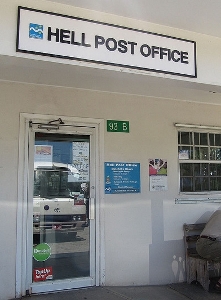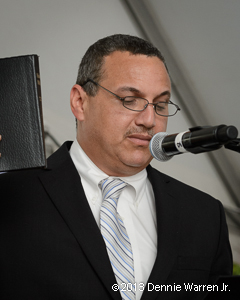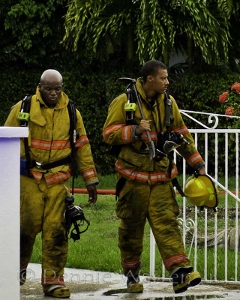Archive for February 5th, 2014

District post offices close weekend doors
 CNS): Shopping for stamps or any other mail related services will be a thing of the past at some district post offices as of next weekend when they, like the eastern district offices, discontinue the Saturday morning services. Offices in Hell and Bodden Town, which once offered a weekend service, will cease to do so from 15 February. The North Side and East End post offices have been closed on Saturdays for some time and officials said that this is now a permanent decision. However, Savannah, Airport, General, Seven Mile Beach and West Bay and post offices on the Sister Islands will retain their Saturday service.
CNS): Shopping for stamps or any other mail related services will be a thing of the past at some district post offices as of next weekend when they, like the eastern district offices, discontinue the Saturday morning services. Offices in Hell and Bodden Town, which once offered a weekend service, will cease to do so from 15 February. The North Side and East End post offices have been closed on Saturdays for some time and officials said that this is now a permanent decision. However, Savannah, Airport, General, Seven Mile Beach and West Bay and post offices on the Sister Islands will retain their Saturday service.
This decision comes after the issue was raised by North Side MLA Ezzard Miller in Finance Committee when the 2013/14 budget was being considered. Miller recognized it as an ineffective operation of the postal service after a financial review was performed on Grand Cayman facilities to determine the revenue collected on a Saturday.
The review found that for the last five years CIPS collected less than 3% of its revenue on Saturdays. Even when value-added services, such as utility bill payments, were included, less than 5 percent of revenue was collected on Saturdays.
Postmaster General Sheena Glasgow said that it is increasingly difficult to justify keeping the post offices in North Side, Hell, East End and Bodden Town open on a Saturday when these facilities collect less than 1 per cent of their annual revenue on that day.
“This was a collaborative effort with North Side MLA Ezzard Miller,” she said. “He raised the issue because he recognized that it is very costly for the Postal Service to conduct Saturday business. This is particularly true for the district postal facilities that have smaller business volumes,” she said. “Continuing to keep district post offices open on Saturdays has also been challenging for management as the number of postal staff has reduced significantly since 2008 and staff have never been paid overtime for their Saturday hours since the hours resumed in 2008,” Glasgow added.
“I would venture to say that few private sector companies, if any, would continue to stay open for Saturday business year after year while earning less than 1% of their annual revenue on that day,” the post office boss stated.
Glasgow explained that the by way of compromise, some of the larger postal facilities will still be operational on Saturdays.
Premier meets disability committee but no sign of law
(CNS): It is now almost five years since Alden McLaughlin, who was at the time the education minister, first received a report from the legal subcommittee for persons with disabilities, which was tasked with reviewing existing and recommending new legislation to cover the needs of the physically and mentally disabled community. Since then, hopes for a comprehensive law have been dashed as there is still no timetable for a bill to come before legislators. However, the premier, as he is now, did return to meet with the current disability policy subcommittee last month to thank them for the work they have been doing.
Once it comes, the law will “support, promote and protect the interests of people with disabilities” officials said, but while the Progressive government has said it is committed to the legislation and McLaughlin is picking up where he left off, a date for comprehensive protections for the disabled remains elusive.
Piers would allow cruise visitors to take more tours
(CNS Business): Tourism Minister Moses Kirkconnell told CNS Business on today’s video clip that if Grand Cayman had cruise ship piers, this would give visitors time to take more than one tour when they stop here. The economic benefit for the Caymanian people would be “very huge” because they would allow the cruise ships to stay longer in George Town. “This coming year we will have 1.7 million people arrive. That means you have 1.7 million people who want one tour. If you have the piers, because they stay longer, we’ll have 1.7 million people that can purchase two tours per day. So the piers actually allow you to double the income that’s available from tours that come into the country.” Read more and comment on CNS Business

Premier ‘made Cayman proud’, officials claim
 (CNS): The Cayman Islands premier did an “excellent job” when he faced Stephen Sackur yesterday in London on BBC’s HARDtalk, according to Cabinet Secretary Samuel Rose and Senior Political Advisor Roy Tatum. How well he did will be plain for all to see when the show airs but officials say they have not yet been given a broadcast date for the flagship news interview show, which is broadcast on BBC television, radio and the internet. Alden McLaughlin agreed to give the interview to the programme in which the host is known to ask difficult and awkward questions and previous guestshave walk out of the studio. However, his staff said McLaughlin did Cayman proud.
(CNS): The Cayman Islands premier did an “excellent job” when he faced Stephen Sackur yesterday in London on BBC’s HARDtalk, according to Cabinet Secretary Samuel Rose and Senior Political Advisor Roy Tatum. How well he did will be plain for all to see when the show airs but officials say they have not yet been given a broadcast date for the flagship news interview show, which is broadcast on BBC television, radio and the internet. Alden McLaughlin agreed to give the interview to the programme in which the host is known to ask difficult and awkward questions and previous guestshave walk out of the studio. However, his staff said McLaughlin did Cayman proud.
Answering questions about the Cayman Islands and overseas territories and the tax haven label, his interview followed the premier’s appearance at Chatham House, where he gave one of two keynote addresses at a conference regarding global corruption and financial crime.
CNS will be keeping a close eye on the HARDtalk website for indications of the broadcast dates and will post the information as soon as it is available.

Deputy Gov falls foul of HR
 CNS): In an ironic twist, as the head of the civil service, the deputy governor has admitted that his office was one of the public authorities which has failed to respond in a timely fashion to the Human Rights Commission. Franz Manderson admitted the infringement in the Legislative Assembly last week as he presented the annual report from the oversight body which monitor’s government compliance with Cayman’s still relatively new Bill of Rights. Franz Manderson told the parliament that the complaint had been brought to his attention and it would not happen again. He assured the House that the commission’s overall complaint that public authorities are either unaware of their legal obligation to respond to its request or “blatantly disregarding it” would be addressed.
CNS): In an ironic twist, as the head of the civil service, the deputy governor has admitted that his office was one of the public authorities which has failed to respond in a timely fashion to the Human Rights Commission. Franz Manderson admitted the infringement in the Legislative Assembly last week as he presented the annual report from the oversight body which monitor’s government compliance with Cayman’s still relatively new Bill of Rights. Franz Manderson told the parliament that the complaint had been brought to his attention and it would not happen again. He assured the House that the commission’s overall complaint that public authorities are either unaware of their legal obligation to respond to its request or “blatantly disregarding it” would be addressed.
According to the 2013 HRC annual report, the commission has had a busy year advising on a catalogue of legislation, making presentations and dealing with a diverse range of complaints. However, in his introduction the outgoing chair, Richard Coles, said it was disappointing to see an emerging trend by public authorities of not responding to official correspondence from the commission.
These failures to respond, the chair wrote, had “created delays related to research, investigation, communication and decision making,all of which negatively impacted the ability of the HRC to efficiently respond and provide resolutions where applicable to complainants' allegations of human rights breaches or infringements.”
He explained that the constitution requires public authorities to respond in writing within a reasonable time to the HRC, but some public authorities were “either unaware of this duty or blatantly disregard it” and he urged civil service bosses to address the problem and lead by example. Coles said senior staff should create a human rights compliant culture and demonstrate a more cooperative spirit with the HRC to protect the public’s fundamental human rights.
Despite the concerns Coles raised in general about public authorities, he praised the deputy immigration chief for his speedy response to an urgent immigration matter involving a minor, as well as his general assistance to the commission.
However, in the LA Manderson held his hand up to the problems and committed to improvements regarding what he said were “serious complaints” by the HRC. He said one of the offices in question was his and he took full responsibility for it, accepting that the office had not responded to a request in a timely fashion but said it would not happen again.
The report covers a wide range of the legislation and the commission's first full year in operation since the BoR was implemented and issues that the HRC worked on during 2013, from its concerns regarding whole life sentences to the advice it is offering to government to change legislation to ensure its compatibility. The HRC dealt with 26 complaints from members of the public alleging breaches and infringements and eight of those cases remain open.
This year four new members will be appointed to the commission as a result of the departure of the chair and two members, Bishop Nicholas Sykes and attorney Sarah Collins, as well as the need to fill another seat on the commission which was vacant throughout 2013.
See report and appendices below and for more information visit the HRC website.

Law enforcement agencies get 26 new rides
 (CNS): The Ministry of Home Affairs has bought 26 new vehicles for the police, prison, immigration and customs departments, spending around three quarters of a million dollars to replace what officials said were older, less efficient and less reliable vehicles. The Ministry says that as a part of its policy of “cost savings through the regular renewal of assets”, 23 cars were purchased from Vampt Motors following a public tender via the Central Tenders Committee and three more vehicles were purchased for the customs department, which will save government half a million dollars over five years in maintenance and fuel efficiencies. The older vehicles will either be scrapped or sold at public auction, officials from the ministry said in a release.
(CNS): The Ministry of Home Affairs has bought 26 new vehicles for the police, prison, immigration and customs departments, spending around three quarters of a million dollars to replace what officials said were older, less efficient and less reliable vehicles. The Ministry says that as a part of its policy of “cost savings through the regular renewal of assets”, 23 cars were purchased from Vampt Motors following a public tender via the Central Tenders Committee and three more vehicles were purchased for the customs department, which will save government half a million dollars over five years in maintenance and fuel efficiencies. The older vehicles will either be scrapped or sold at public auction, officials from the ministry said in a release.
These purchases come at a time when the Department of Environmental Health has invested in new garbage trucks and the Ministry of Planning, Agriculture, Housing and Infrastructure is on the look-out for a fleet of new vehicles.
The savings by spending less than $700,000 on new cars as well as five years of warranty and maintenance was “just one example of the type of strategies that the ministry uses to leverage efficiency and maximize resources,” the ministry stated in a release Tuesday. “The published procurement policy of the ministry requires the overriding consideration of value for money in any procurement,” officials added.
The new vehicles were specified to be more efficient and reliable and come fully equipped for their specific purposes. Sixteen of the vehicles went to the Royal Cayman Islands Police Service, four to immigration department, one for the ministry and two for the prison. This included four mid-sized SUVs, two commercial vans, two specialized prisoner transport vehicles, ten sedans including five patrol vehicles, three motor cycles and one pick-up truck.

Firefighters at risk
 (CNS): Poor quality and worn out personal kit is not only putting local firefighters at risk but it is further undermining morale among officers, who have been struggling to cover their growing workload in the face of staff and resource cuts. However, government has pledged to address the issues facing the service based on the expected recommendations of UK fire experts who were in Cayman this week undertaking a review. Government said more than half a million dollars of missing overtime and comp pay will be made good in the next pay packet for all of the 125 firefighters affected and it will be recruiting 26 new officers in the coming months as well as buying new kit for serving officers. (Photo Dennie Warren Jr)
(CNS): Poor quality and worn out personal kit is not only putting local firefighters at risk but it is further undermining morale among officers, who have been struggling to cover their growing workload in the face of staff and resource cuts. However, government has pledged to address the issues facing the service based on the expected recommendations of UK fire experts who were in Cayman this week undertaking a review. Government said more than half a million dollars of missing overtime and comp pay will be made good in the next pay packet for all of the 125 firefighters affected and it will be recruiting 26 new officers in the coming months as well as buying new kit for serving officers. (Photo Dennie Warren Jr)
Aware of the problems facing the service,Eric Bush, the chief officer in the Home Affairs Ministry, explained Tuesday during a press briefing that addressing the immediate problems of pay was only one issue and they wanted to get to the root of the problems to find long term solutions so that things were not back to the same situation six months from now.
Bush explained that when the Home Affairs Ministry took over the Cayman Islands Fire Service in July from the Tourism Ministry, they immediately became aware that there were a number of issues that had to be addressed. As a result, they began talks with the UK’s Chief Fire and Rescue Adviser Peter Holland. He and his colleague, David Norris, were invited to review the local service to offer their advice as to how Cayman can improve things while maintaining value for money.
At the press briefing the expertsmade a number of observations about their visit, including the poor standard of personal protection kit for individual firefighters, which Holland said was a primary concern for the men and women already demoralized as a result of myriad problems relating to pay and overtime.
While impressed with the trucks and vehicles and major firefighting kit, which was purchased after Hurricane Ivan when an investment of some $6 million was made, as well as local fire safety standards in most of the buildings, the experts said they would be making a number of recommendations about how the CIFS might restructure its cover and make better use of staff. The experts also spoke about improving training standards in some case and adding skills to firefighters so they could also act as first medical responders.
The UK fire boss said that the domestic firefighters needed to make better use of the excellent services at the 911 centre and have them dispatch vehicles to calls. He advised the CIFS to coordinate the terminology and jargon used with the other emergency services for better communication, and spoke about the need for better coverage at the eastern side of Grand Cayman, especially in light of ongoing development with the new hospital project there.
Over the years, the fire service has seen a decline in firefighters while simultaneously seeing a growth in development. The acting chief fire officer explained that the service had lost forty officers in the last three years alone. With a recruitment drive now planned, the service, which is currently staffed by 100% locals, will see the numbers begin to climb but recommendations from the UK experts to change the way firemen and women serve to an on-call system would help them increase their pay checks and help with more targeted cover.
Holland said that while fire safety standards are excellent, there is only one firefighter who is checking those standards to ensure they stay that way and he warned that this was inadequate.
The UK experts' report will focus on what the ministry and CIFS management can do to better utilize existing and future resources and ensure that service fulfills all of its obligations while improving the safety and morale of its staff.